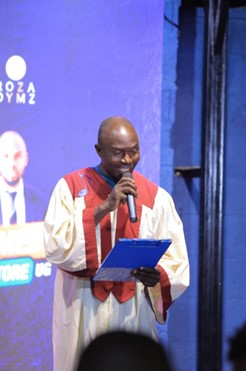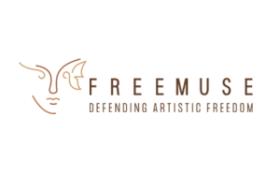In July 2020, Ugandan comedians from the group Bizonto, Julius Sserwanja, Mbabaali Maliseeri, Gold Ki Matono, and Sssaabakaaki Peter were arrested for releasing a satirical skit titled "Who are our leaders," on YouTube. The skit humorously criticized the dominance of individuals from western Uganda in key government positions. The four comedians were charged under Section 41 of Uganda’s Penal Code, which carries a penalty of up to five years in prison.
Following this arrest, the comedians adhered to police bond conditions by regularly reporting to Kibuli CID headquarters. However, they were re-arrested in March 2021 on allegations of violating their bond conditions from the previous arrest. This latest arrest occurred after Bizonto posted another satirical skit addressing issues of poverty, insecurity, election malpractice, and land ownership in Uganda.
Despite denying the charges and facing opposition from the prosecution regarding bail, the comedians were granted bail by Grade One Magistrate Asuman Muhumuza on 5 March 2021.. Each comedian was released on a 100,000 shillings cash bail (approximately 25 euros), with sureties required to execute a 500,000 shillings bond (approximately 124 euros). They were scheduled to reappear in court on April 8, 2021, for further proceedings. Several hearings were conducted subsequent to April 8 until the case was ultimately dismissed by the Court in 2022 due to insufficient evidence.
To understand more about the impact of these events on Bizonto and to learn about their current endeavors, we conducted an interview with Julius Sserwanja, a key member of the group. Julius shares insights into their journey, the role of satire in Ugandan society, and their future plans.

Interview with Julius Sserwanja, Ugandan Journalist, Actor, and Comedian - Bizonto Group Comedy Group
Q: Can you present yourself a little bit?
A: I am Ugandan, a journalist, actor, and comedian. My name is Julius Serwanja. I've been in journalism for 13 years and in comedy for 6 years. I lead a group of five people—four men and one woman. We've been together for 6 years. Besides performing, I also write, compose, direct, and handle various aspects of entertainment. Currently, I work with Radio Simba in Kampala, Uganda, where I host the morning show "Olugambo Ensimbi." It's a Luganda-speaking radio station.
Q: I'd like to hear your thoughts on how satire and humor can influence public discourse and perceptions of governance.
A: In developing countries like ours, people often feel overwhelmed and disconnected from the seriousness of issues around them. Humor can break through that numbness, making it easier for people to engage with important topics. By presenting information in a humorous way, we can reach a wider audience and spark conversations that might otherwise be ignored or overlooked.
Q: Your satirical skit "Who are our leaders" gained significant attention. What was the main message or critique you intended to convey through this performance?
A: The skit highlighted the imbalance in leadership representation among Uganda's diverse tribes. With over 50 tribes, it's crucial that national resources are fairly distributed. However, we observed that leadership positions were disproportionately held by individuals from one region, neglecting others. Our aim was to shed light on this issue and stimulate discussion on fair representation and governance.
Q: Your performance led to legal challenges, including accusations of sectarianism. How did your group respond to these allegations, and how do you navigate the balance between artistic freedom and legal boundaries?
A: When we faced arrest, it became clear that even those involved in prosecuting us privately sympathized with our message. This support, coupled with public outcry, strengthened our resolve. However, the legal process was arduous and financially draining. We felt stigmatized and isolated, which affected us deeply. Despite this, we believe in our right to express critical views through satire, even if it challenges authority.
Q: Do you think there are steps you could take to ensure your satire remains within acceptable bounds while addressing societal issues?
A: It's tempting to avoid controversy altogether, but the issues we address are crucial for our society's progress. We've adjusted our approach but won't shy away from tackling important topics. Recently, we announced a series of satirical videos, using both local and English languages to broaden our reach and message.

Q: What responsibilities accompany artists’ freedom of expression, and why is it important to advocate for it?
A: Silence on pressing issues only perpetuates problems. Corruption and mismanagement of resources continue unabated while citizens suffer. As artists, we have a duty to provoke thought and action. Our work aims to hold leaders accountable and inspire positive change, regardless of the challenges we face.
Q: Apart from legal challenges, did you face any backlash or support from political figures or authorities regarding your skits?
A: We've received no direct political support or opposition. Our work is driven by our own observations and experiences, not aligned with any political agenda. Our goal is to represent the voiceless and challenge the status quo through humor and insight.
Q: What are your future plans for comedic and satirical work?
A: We remain committed to using our platform to address societal issues. Despite obstacles, we continue to release satirical content that sparks dialogue and reflection. Our upcoming projects aim to further engage and inform the public on pressing matters.
https://www.youtube.com/watch?v=ZJZ87F9JMRQ&ab_channel=BizontoComedy
Clip from some of the satirical content Bizonto group presents nowadays, called “100 skits of Revolution”
Images : courtesy of Julius Sserwanja





